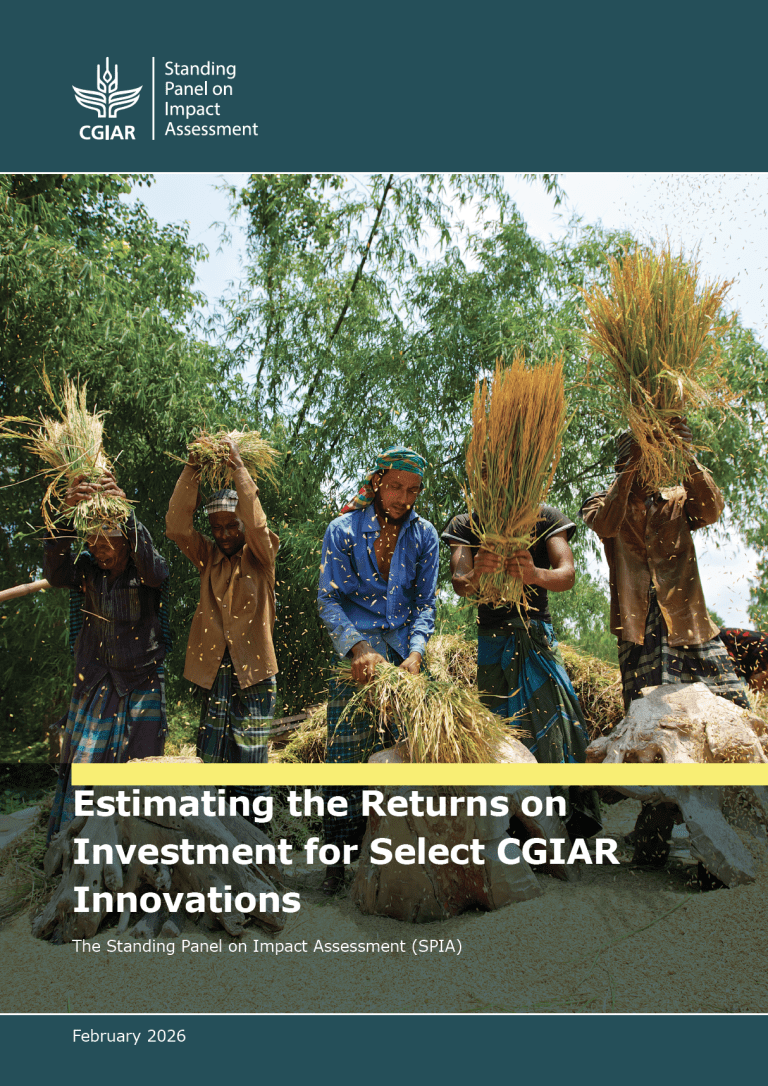Abstract
SPIA has developed a comprehensive, country-level approach to documenting the adoption and diffusion of agricultural innovations linked to CGIAR research. The first focal country for this approach is Ethiopia, where SPIA has been working since 2015.
The approach involves three stages:
Understanding the full range of recent CGIAR activities in the country by engaging with CGIAR researchers, science leaders and national stakeholders. In Ethiopia, this led to detailed documentation on 52 different CGIAR-related innovations from the past two decades related to the work of 10 CGIAR Centers and their partners, including the Ethiopian Institute for Agricultural Research (EIAR).
Prioritizing among these candidate innovations and identifying those that can be observed in survey data or be subjected to new data collection approaches such as DNA fingerprinting or remote sensing. Methodological experiments and pilot tests of data collection approaches were used in Ethiopia to select the best data collection approach for each innovation.
Working with partners – in the case of Ethiopia, the World Bank Living Standards Measurement Study (LSMS) team and the Ethiopian Central Statistics Agency (CSA) – to integrate these new data collection approaches into nationally representative surveys. For Ethiopia we integrated 18 such CGIAR-related innovations.
In 2016 and 2019, SPIA supported the CSA to field the third and fourth rounds of the Ethiopian Socioeconomic Survey. The 2019 round included, for the first time, DNA fingerprinting of crop varieties, alongside detailed protocols for livestock and natural resource management. Using the DNA fingerprinting data we have been able to establish that CGIAR-derived germplasm is used by 19% of barley-cultivating households and 63% of maize-cultivating households.
The nationally representative nature of the data reveals which innovations have scaled and where scaling has happened; the panel structure allows for an analysis of the trajectories that households are on when they adopt (or dis-adopt) specific innovations; and the rich socioeconomic data helps to understand who adopts – all crucial information to understand pathways to several of the CGIAR impact areas (such as gender equality, youth and social inclusion).
CGIAR's contribution to Ethiopia’s agricultural development is complex and wide-ranging, and while some aspects cannot be captured by survey data, this new source of adoption and diffusion data, and the summary report that accompanies it, help to identify the scale and scope of CGIAR’s reach in Ethiopia. Looking ahead, SPIA’s experience in Ethiopia demonstrates the potential of this approach in other countries where CGIAR works.
Download the Report
You can also download a 2-page brief
Supplementary materials (including data and replication files) available here
Visit the Project Page
Find blogs, news and videos about the report here
Citation
Kosmowski, F., Alemu, S., Mallia, P., Stevenson, J., Macours, K. (2020). Shining a Brighter Light: Comprehensive Evidence on Adoption and Diffusion of CGIAR-Related Innovations in Ethiopia. Rome: Standing Panel on Impact Assessment (SPIA).
Authors
Frederic Kosmowski, Solomon Alemu, Paola Mallia, James Stevenson, Karen Macours





